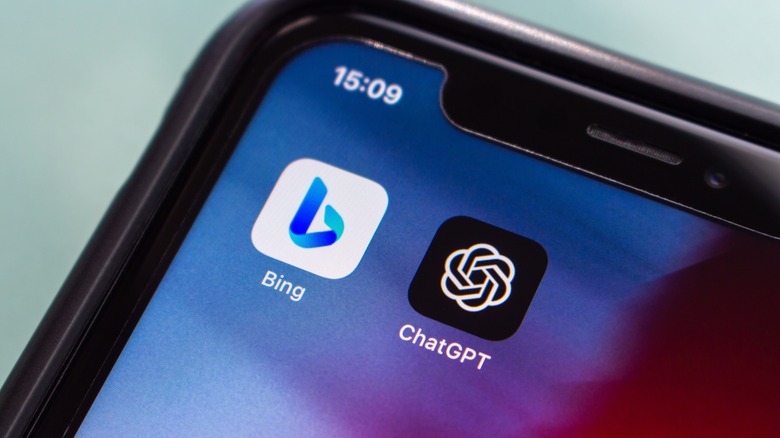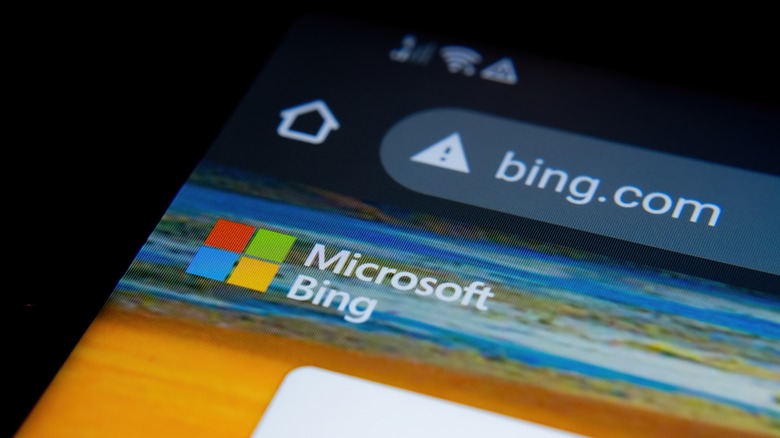Microsoft Is Already Exploring Ads For Bing Chat
Microsoft's Bing Chat raised some hard questions about the future of advertising on an internet where AI-powered chatbots scrape content from publishers and repackage it for users, seemingly cutting the source of the info out of the picture entirely. There's no clear answer to this budding problem yet, but Microsoft has been quick to the plate with something approaching a solution — or, at least, a first step toward one: advertisements integrated into its Bing Chat AI tool.
In its current state, Bing Chat offers up references for the sources of the information it presents, though whether that'll be enough to satisfy content creators remains to be seen. The big issue is whether enough Bing Chat users will click through to those references or, having received the info they wanted, simply move on to their next interest, depriving the website of those clicks and ad views. Revenue sharing is an obvious way to address this, but that means getting the advertisements in front of users' eyes even if they never move beyond the Bing chatbot.
Content creators may get a small piece of the pie
In a blog post published on March 29, Microsoft discussed the topics of boosting traffic and overall "value" for publishers in relation to Bing Chat. The company acknowledged the role that publishers play in creating content and the vital importance of advertisements, which fund the paychecks for those behind the websites. The company says that it has made it a "top goal" to "drive more traffic to publishers in this new world of search."
Revenue is a key concern, of course, which is where the second goal comes in. Microsoft says that it is working on "pioneering the future of advertising" as it relates to an AI-dominated internet. How will it do that? Two possibilities were shared: displaying multiple links from publishers when the user hovers over a reference, and a revenue-sharing arrangement with publishers that could, among other things, involve putting ads in the chatbot. In the example provided by Microsoft — which is simply referred to as an idea at this time — the revenue would be shared with the publishers whose content was used to generate the answer for the user.
Of course, Bing Chat is only one player in the arena, with its most notable competition being Google Bard — though the latter is still very much in its infancy and was, by all accounts, a rushed project spurred out of desperation to stay competitive. It seems likely that Google will eventually embrace some sort of revenue-sharing arrangement of its own, but only time will tell how that works out.

